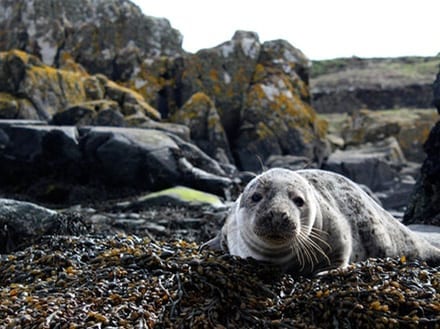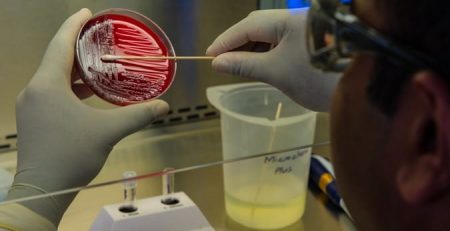Another Unforeseen Consequence of Global Warming Emerges
A new study from the University of California, Davis has uncovered yet another unintended consequence of global warming, particularly in the Arctic where things are heating up three times faster than the rest of the planet. In addition to rising temperatures impacting creatures who rely on ice, Arctic mammals are now spreading their germs “to exotic new locations,” Popular Science reports.
What began as an observation of phocine distemper virus (PDV) by marine animal health researcher Tracey Goldstein in a population of North Pacific sea otters in 2004 led Goldstein and her team to examine sampling data from multiple species of sea otters, sea lions, and seals in both the North Pacific and North Atlantic between 2001 and 2016 and noted whether the animals had been exposed or infected with PDV, along with satellite information on population distribution. They found widespread PDV exposure and infection among North Pacific animals peaked in 2003 and again in 2009, years that coincided with especially low sea ice formation in the Arctic Ocean.
The lack of ice is notable because normally the ice creates a barrier between the northern Atlantic and Pacific Oceans, but in the two years in question, this natural barrier wasn’t present. This would allow groups of animals to comingle that typically wouldn’t otherwise.
Just as measles is passed from person to person, most researchers believe PDV is passed from animal to animal through droplets sprayed from the mouth and nose. “A lot of the transmission occurs when they all pull out onto rocks or bits of land,” Cornell University marine biologist Drew Harvell said. “That’s when the respiratory droplets that transmit the virus can be transmitted.”
PDV is particularly dangerous for harbor seals, and while little is known yet about how North Pacific species will fare during an outbreak, Goldstein still suspects the sea ice and her immunity, which wears out as members of the herd die of old age and are replaced by those who haven’t already been exposed to the virus, might have something to do with these peaks.
Regardless, Harvell still believes this is still cause for concern. “PDV is a bad one, because it’s a multi-host pathogen,” she said.














